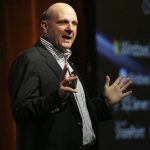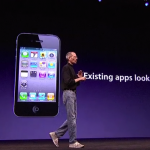10 Things Microsoft did wrong in fiscal 2010

Late last week, I posted a top-10 list of things Microsoft did right during fiscal year 2010, which ended on June 30. With every right there must come a wrong. What will surprise some readers is how some actions fit into both categories. A number of "wrongs" on this list also appear on my "did right" list but put into different context. With that introduction, during fiscal 2010, Microsoft wrongly:
1. Revamped its cloud computing strategy. Azure debuted a month late and a whole vision short. In 2008, Microsoft Chief Software Architect Ray Ozzie laid out a startling and potentially revolutionary cloud computing vision. Developers would write to the datacenter much as they did to the desktop operating system. I likened the approach to an operating system in the sky -- to a truly cloud OS.
10 Things Microsoft did right during fiscal 2010

A month following the end of Microsoft's fiscal year and two weeks after announcement of record earnings, it's time to take a long look back at the company's FY2010 accomplishments. Some of these items will partially repeat from my calendar year 2009 list and early calendar 2010 list. Numbers 1 thru 6 are new; the others derive from the previous two lists. With that introduction, during fiscal 2010, Microsoft rightly:
1. Launched Azure. Microsoft's cloud platform debuted a month late but still early enough in FY2010 to be meaningful. Timing is right, particularly given the economy. Many businesses are struggling to budget for technology upgrades, to manage IT resources and to provide employees with anytime, anywhere, on-anything informational access.
Lesson for Microsoft: Advertising works

Today, the Windows Blog has a post about Internet Explorer gaining a seemingly minuscule amount of usage share in July. Ryan Gavin cites Net Applications data showing IE gains for the second month in a row against Google Chrome and Mozilla Firefox declines. Month-over-month, IE usage share rose to 60.74 percent from 60.34 percent; Chrome declined to 7.16 percent from 7.24 percent; Firefox declined to 22.91 percent from 23.81 percent. Apple's Safari gained share -- 4.85 percent to 5.09 percent. The share changes are statistically meaningful because of the large number of global users.
From a different perspective, however, the numbers aren't as competitively good as they seem, since in aggregate over many months they more significantly show Internet Explorer 8 taking share from IE 6 and IE 7. That said, two months of overall gains represent a significant turnabout for Microsoft's browser, which usage share had declined, in aggregate, since early 2005. The two-month gains closely align with Microsoft's Internet Explorer 8 advertising campaign, which starting airing the first week of June.
Microsoft wants to park a cloud container in your driveway

Cloud computing dominated the morning's Microsoft Financial Analyst Meeting 2010 presentations. COO Kevin Turner and Chief Research Strategy Officer Craig Mundie spent more time talking cloud computing than any other topic. For Mundie, it was a bold departure from previous years, where he spoke broadly and almost exclusively about forthcoming technologies -- typically years from release, if ever. Last year, he asserted that the successor to the PC would be "a room."
Some reasons for Microsoft's cloud focus should be obvious:
70% of Microsoft cloud 'wins' are new customers

Microsoft COO Kevin Turner made the bold statement this morning during the company's annual FInancial Analyst Meeting. "One of the most exciting things about our cloud strategy is that 70 percent of the wins in the cloud that we had in Q4, ladies and gentlemen, were new Microsoft customers," Tuner told financial analysts. "Yeah, new Microsoft customers. They were IBM Lotus Notes customers, Novell e-mail customers. They were all this other stuff, in addition to the Microsoft customers, that we're actually able to grow our portion of the pie this next year in a very dramatic way, because we can explode worker productivity."
"New" and "customers" are two words not often conjoined at Microsoft. The company's enterprise products are so well established, new sales are usually to existing customers. That Microsoft is adding any new customers from its cloud services is significant. The number Turner stated is staggering, assuming his definition of "new" means a customer who isn't using Microsoft products somewhere else, which is a tough claim for this reporter to believe.
Steve Ballmer has one more chance to save his job

July 29, 2010 may be remembered as the most important day in Steve Ballmer's career at Microsoft. Tomorrow, the company hosts its annual Financial Analyst Meeting, or FAM. How much Ballmer and his core leadership team spend concretely talking about the future, rather than the past, will foreshadow how long the chief executive can remain the big boss. Nearly as important: Which executives will make presentations.
Microsoft closed fiscal 2010 on June 30 and last week announced record fourth quarter and yearly results. (I skipped covering Microsoft earnings for the first time in nearly a decade, to attend San Diego Comic-Con. I will likely post a belated "by the numbers" analysis after FAM.) Microsoft uses the event to offer financial analysts a long look back at the old fiscal year and to give a sneak peak at the FY ahead.
5 things I learned during San Diego Comic-Con

I spent Thursday through Sunday (July 22-25) covering one of the best geek events anywhere -- best because the appeal is so broad. At Comic-Con, everyone is a geek, or someone else if they cosplay (costume play). The event has changed as big Hollywood media exercises greater influence. Comic-Con is no longer just about comics, anime or manga. Last year, for example, director James Cameron debuted a long segment from the then upcoming movie "Avatar."
Like previous years, I focused my reporting not on the star-studded panels but the attendees and exhibitors. From my viewpoint, the real stars aren't the Hollywood actors, directors or producers but the artists and attendees, many of whom dress up as someone else. For one day, or as many as four, they assume other personas or revel in the roles their favorite heroes play.
A frank conversation about the futures of Apple and Microsoft

The day following blow-out Apple earnings, my attention turns to Microsoft, which announces fiscal 2010 fourth quarter and year results tomorrow. I'm not the only person thinking about Apple, Microsoft, other tech companies and the future direction of computing.
Overnight, I got an email from Mark Reschke, who clearly is a Mac fan. Reschke is excited about Apple's fiscal 2010 third quarter results, where iPad and iPhone combined accounted for nearly half of revenues. In this post I share Reschke's e-mail and my e-mail response to him.
Apple Q3 2010 by the numbers: Record quarterly revenue tops $15.7 billion

Today, Apple set the stage for a historical competitive upset: Exceeding Microsoft revenue during the same quarter. Cupertino, Calif.-based Apple's quarterly earnings again blew past Wall Street consensus, which already were $1.55 billion to $1.75 billion higher than company guidance. Apple also exceed quarterly revenue consensus estimates for Microsoft, which announces fiscal 2010 results on Thursday. I first posted about Apple revenue exceeding Microsoft revenue in April and again in June, not once but twice.
After the bell, Apple reported $15.7 billion revenue and net profits of $3.25 billion, or $3.51 a share. A year earlier, Apple reported revenue of $9.73 billion and $1.83 billion net quarterly profit, or $2.01 per share. Revenue rose 61 percent year over year and earnings by 78 percent. Fiscal 2010 third quarter ended June 26, 2010. By the way, analyst revenue consensus for Microsoft is $15.27 billion.
Steve Jobs shows little remorse about iPhone 4 Death Grip -- should he?

Yesterday, I recommended five things Apple should do during today's press conference about iPhone 4. Within hours of the post, Apple already had done two -- release a software update and informally deny that there would be an iPhone 4 recall.
During today's media event, Apple CEO Steve Jobs fully did two others: Offer free iPhone 4 cases and reveal number of iPhone 4 returns. For the other -- bringing out engineers -- Jobs instead personally discussed the engineering problems and showed that other phones display similar behavior, where human contact with certain areas of the phone can cause the signal bars to decline.
5 things Apple should do to kill iPhone 4 Death Grip

On July 16, Apple is holding an unspecified media event about iPhone. The presumption is that the company will finally address the so-called Death Grip, where bodily contact with the lower left-hand side of iPhone 4 causes the signal indicator to decline. I'm assuming that's the purpose of the event and here offer up five things Apple should do there to handle the public relations problem.
First, I'll offer some brief analysis. Apple should never have let Death Grip get so out of hand. Apple marketing is as good as -- often better than -- its products. The company masterfully generates good perceptions. But Death Grip seems to have squeezed the life out of Apple's PR and marketing staff and CEO Steve Jobs. Apple's lack of assertive action shows that there is some validation to blogger, Consumer Reports, customer and journalist reactions to reported antenna problems. Something is wrong. But is it really all that bad?
Office 2010 belly flops in early retail sales dive

US consumers and small businesses aren't rushing out to buy Office 2010, which doesn't surprise me. "Units and dollars are down from Office 2007's initial two weeks of sales but are in line, and in fact slightly ahead of, sales trends of Office 2007 so far this year," Stephen Baker, NPD's vice president of industry analysis, blogged yesterday. "Even so, sales of Office 2010 in general have to be characterized as a bit disappointing during the first two weeks."
The sales sentiment contrasts starkly with the Office 2007 retail launch, when during the first week "sales jumped 108.6 percent in terms of units and 106.3 percent measured in revenue compared to Office 2003." NPD data reflects US online and brick-and-mortar retail sales.
Apple should NOT recall iPhone 4

Today's Business Insider headline "Suddenly, Everyone Is Talking About An iPhone 4 Recall!" is tabloid journalism gone too far. Dan Frommer aggregates quotes from blogs or news sites demanding an iPhone 4 recall. There's no counterpoint. I'll give one: I'm not asking for a recall, so it certainly isn't everyone. What about you? Do you demand an iPhone 4 recall? (Uh-oh, my colleague Ed Oswald posted about a recall being inevitable, too. For shame!)
In late June, I posted: "12 people share their iPhone 4 Death Grip stories." These dozen iPhone 4 owners told antenna/reception stories ranging from serious problems to none. As I expressed then: "The reception problems aren't as widespread as blogs and news stories suggest" and "Most people reporting 'Death Grip' are only seeing problems in weak signal areas." The point: Not everyone is dissatisfied with iPhone 4.
New Apple FaceTime TV ads give me the creeps

Seriously, all four new FaceTime ads creep me out. I know they're meant to be sentimental, but they're simply too real. I feel like a voyeur eavesdropping on very personal interactions. It's a place I don't belong. It's not my moment to share. Apple posted the commercials to YouTube on July 9th. I only discovered them today.
There's a veiled, backhanded compliment to my creepy feelings. As an exercise in creating intimacy between two people and showing the endearing qualities a video call has over voice, the TV commercials are enormously effective. But to my watching, there's realism, and there's realism.
'Make it simple, stupid' should be the motto for the mobile Web

Ian Betteridge is spot on with today's post: "The era of simplified computing." Simpler defines the current PC market. Simplest defines the next computing paradigm -- anytime, anywhere, on anything, for which the cloud-connected mobile device is the major platform.
"I've come to see that we're entering a new era of computing, one where the paradigms and expectations of the world of the PC won't give us much guidance," Betteridge writes. "This new era is all about simplified computing, technologies where what's important is the ability to sit down, get something done, and put down the device. Fast, simple, and most of all requiring as little knowledge about the underlying technology."
Joe's Bio
Joe Wilcox is BetaNews executive editor. His motto: Change the rules. Joe is a former CNET News staff writer, JupiterResearch senior analyst, and Ziff Davis Enterprise Microsoft Watch editor.
Ethics StatementBetaNews, your source for breaking tech news, reviews, and in-depth reporting since 1998.
© 1998-2025 BetaNews, Inc. All Rights Reserved. About Us - Privacy Policy - Cookie Policy - Sitemap.
